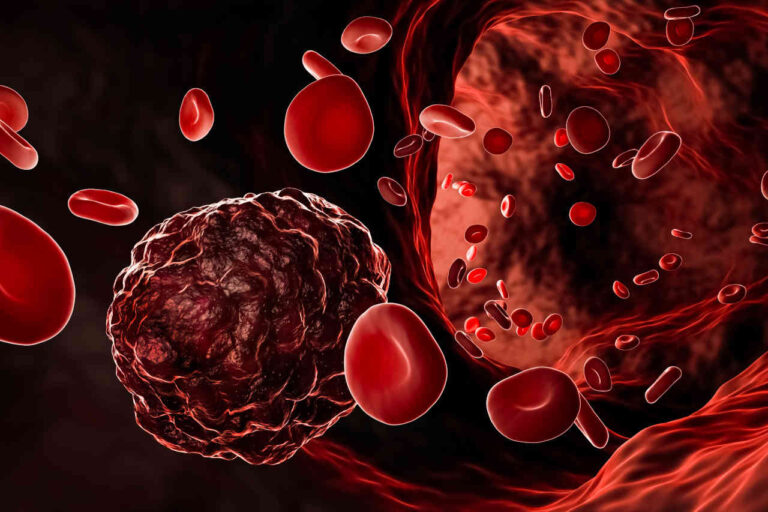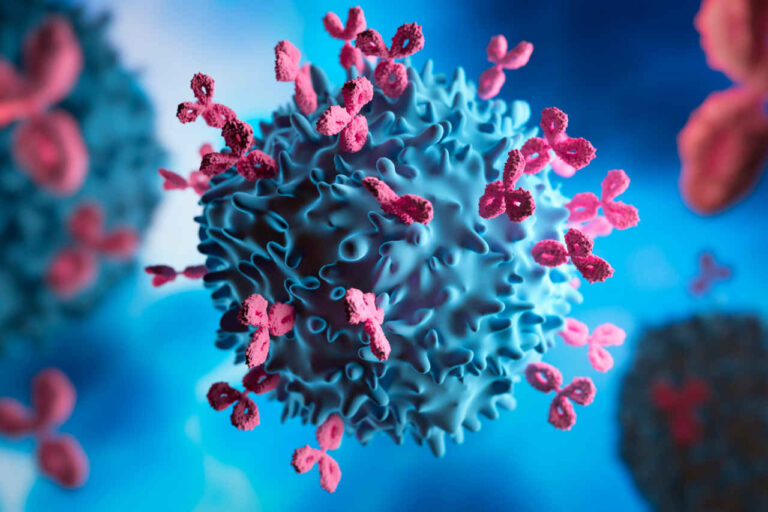
Tafinlar (dabrafenib) is a chemotherapy medication used to treat certain cancers affecting your skin, lung, and thyroid. It is a brand-name prescription medication that belongs to a family of chemotherapy medications known as kinase inhibitors.
Get Chemotherapy Copay Assistance
Chemotherapy Financial AssistanceWhat Is Tafinlar Used to Treat?
Tafinlar is FDA-approved to treat people with a certain type of skin cancer (melanoma), lung cancer, thyroid cancer, and solid tumors, when surgery is ineffective or when cancer has spread to other body parts (metastasized).
Depending on the type of cancer, Tafinlar can be used with another chemotherapy called Mekinist (trametinib).
While Tafinlar is mostly used in adults, it’s also FDA-approved for use in children 6 years and older with solid tumors that cannot be removed with surgery or that have spread to other body parts, and no alternative treatment options are available.
How Does Tafinlar Work?
Tafinlar blocks the activity of an enzyme called BRAF kinase. In a healthy person, this enzyme works to control unwanted cell growth. However, in people with certain types of cancer, faulty BRAF causes cells to multiply and spread abnormally, leading to cancer and uncontrolled cell growth. By blocking the faulty BRAF, Tafinlar helps slow cancer growth.
What Are the Side Effects of Tafinlar?
Side effects can range from mild to severe and can vary if you take Tafinlar with Mekinist. The following list contains the side effects of Tafinlar alone or the Tafinlar-Mekinist combination.
Common side effects
- Headache
- Fever
- Chills
- Pain in your joints, muscles, or back
- Hair loss
- Tiredness
- Cough
- Runny nose
- Sore throat
- Vomiting
- Constipation
- Loss of appetite
- Thickened skin
In children 6 years and older, the most common side effects are:
- Fever
- Rash
- Vomiting
- Fatigue
- Dry skin
- Cough
- Diarrhea
- Dermatitis acneiform (red, pus-filled bumps on the face, scalp, chest, and upper back)
- Headache
- Abdominal pain
- Nausea
- Constipation
- Bleeding
- Skin infection near a fingernail or toenail
Tafinlar can also cause changes to some of your lab values and cause high blood sugar, low blood phosphate or sodium levels, and raised liver enzymes. Your provider will likely monitor these labs before and throughout treatment with Tafinlar.
Consult a Chemotherapy Specialist
Get Chemotherapy Treatment AssistanceRare, but severe side effects
Severe side effects are rare but can be life-threatening. Call your provider immediately if you experience serious side effects. Moreover, call 911 or your local emergency number if you think a medical emergency has occurred. Severe side effects can include the following:
- New cancers: Both Tafinlar and the Tafinlar-Mekinist combination can potentially raise your risk of new skin cancer and other cancers. Call your provider immediately if you develop new sores or changes in the color and size of moles.
- Bleeding: Potentially life-threatening bleeding may occur when you use this medication with trametinib. Clinical trials have revealed cases of bleeding in the brain and digestive tract. Seek immediate medical care if you have tar-like stools, coffee-ground vomit, sudden tingling, or dizziness.
- Weakened heart muscle: Symptoms include shortness of breath, chest pain, swelling in the lower legs, dizziness, and a pounding heart.
- Uveitis: Uveitis causes swelling inside your eye. Watch for symptoms of uveitis, such as vision changes, eye pain, and heightened sensitivity to light.
- High body temperature: Serious fever can occur with both Tafinlar and Tafinlar-trametinib combination. However, severity is usually higher in those receiving the combination. Symptoms can include chills and uncontrollable shaking.
- Serious skin reactions: Fatal skin reactions have been reported in some people taking the combination. Your doctor will likely discontinue treatment if your condition does not improve within 3 weeks.
- High blood sugar (hyperglycemia): Tafinlar can raise your blood glucose levels. Thus, your doctor may order a blood glucose test before and during therapy if you have diabetes.
Allergic reactions
Allergy reactions to Tafinlar can be mild to severe. A mild allergic reaction can cause:
- Rash
- Itchy skin
- Flushing
In rare cases, a severe allergic reaction may occur. Seek emergency medical care if you have:
- Swollen tongue, mouth, or throat
- Hives
- Breathing difficulty
- Wheezing
- Tightness in your chest
Tafinlar (Dabrafenib) Dosage

Tafinlar comes in 50 mg and 75 mg capsules that are taken by mouth about 12 hours apart. Take your dose at least 1 hour before or 2 hours after a meal because food can affect how well the medication is absorbed into your body. Swallow the entire capsule whole. Avoid crushing or breaking it.
Adult dosage
The recommended adult dose is 150 mg by mouth twice per day.
Children 6 years and older
The recommended dose for children depends on their weight:
- Body weight (BW) 26 kg (57 pounds) to 37 kg (81 pounds): 75 mg orally twice per day.
- BW 38 kg (82 pounds) to 50 kg (110 pounds): 100 mg twice per day.
- BW 51 kg (111 pounds) or greater: 150 mg by mouth twice per day.
- BW less than 26 kg: No recommended dosage established.
Duration of Tafinlar treatment
When used to prevent skin cancer from coming back after surgery, the usual recommended length of treatment is up to 1 year. For all other cancers, your provider will likely have you continue taking Tafinlar as long as it is helping your condition and you’re not having any significant side effects.
Speak to a Specialist
About Copay AssistanceUse in Pregnancy and Lactation
Tafinlar can cause severe and life-threatening harm to unborn babies based on findings from animal studies. Females of childbearing age should use an effective non-hormonal contraceptive during treatment and for at least 14 days after the last dose of Tafinlar. In addition, avoid breastfeeding during treatment and for 14 days after the last intake.
How Much Does Tafinlar Cost?
Cost can vary depending on your insurance plan, location, and pharmacy. Note that Tafinlar is a specialty drug, meaning you might need to fill your prescription through specialty pharmacies.
Ask your insurance provider if your plan covers this medication or if you need prior authorization.
Novartis, which makes Tafinlar, offers two programs: Novartis Oncology Universal Copay Program and Patient Assistance Now Oncology. Contact us to learn more about financial assistance for Tafinlar.













